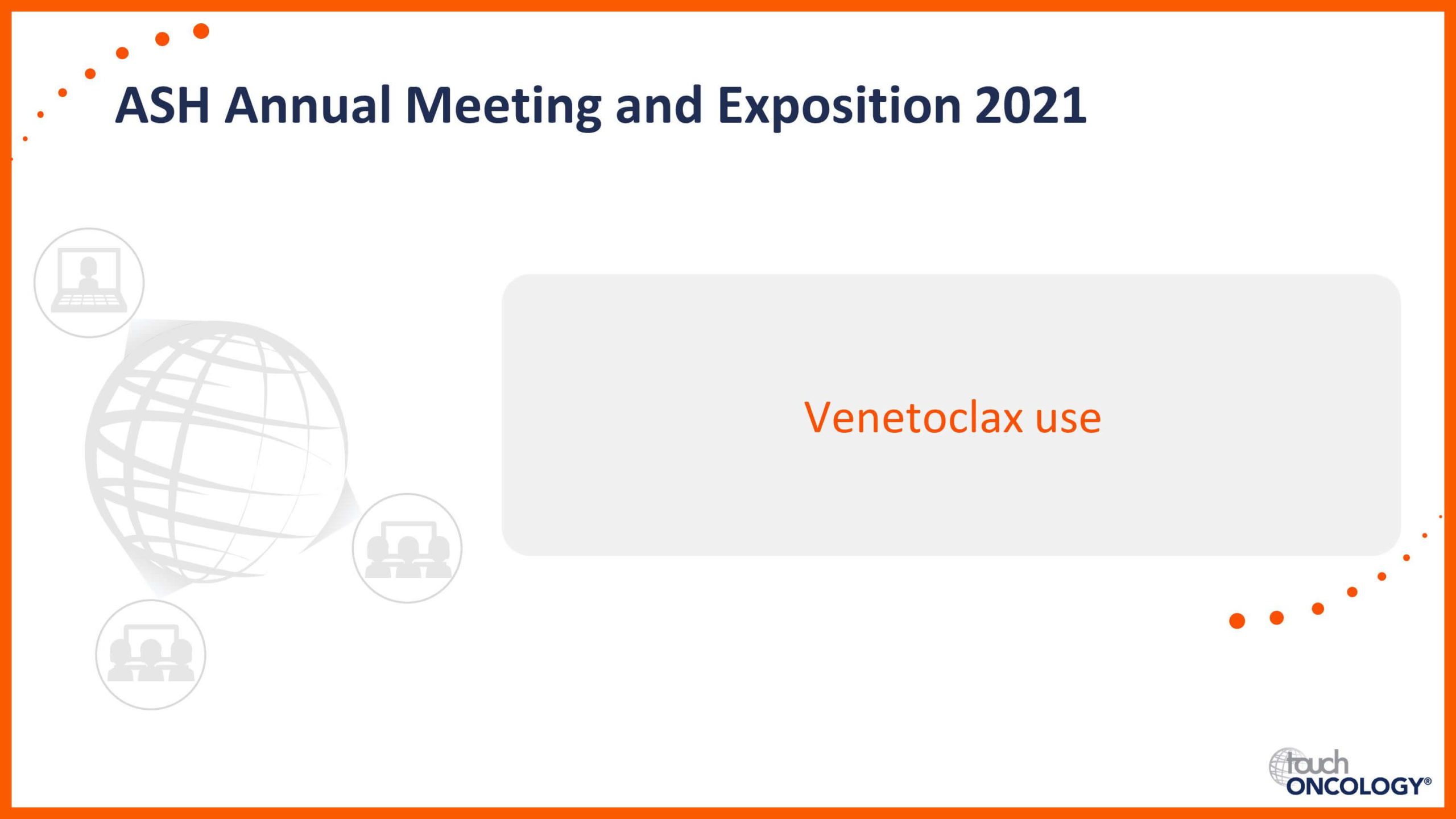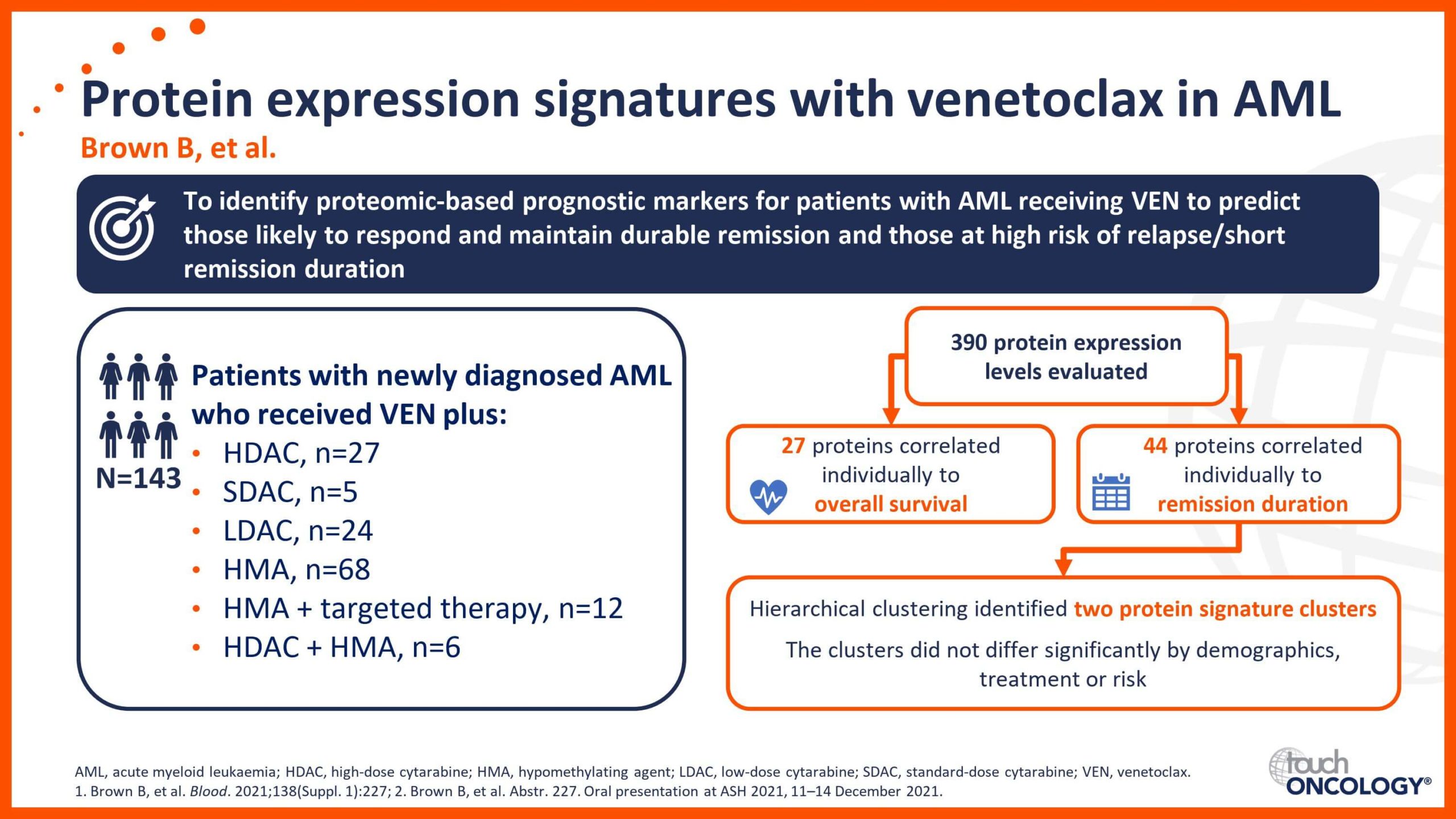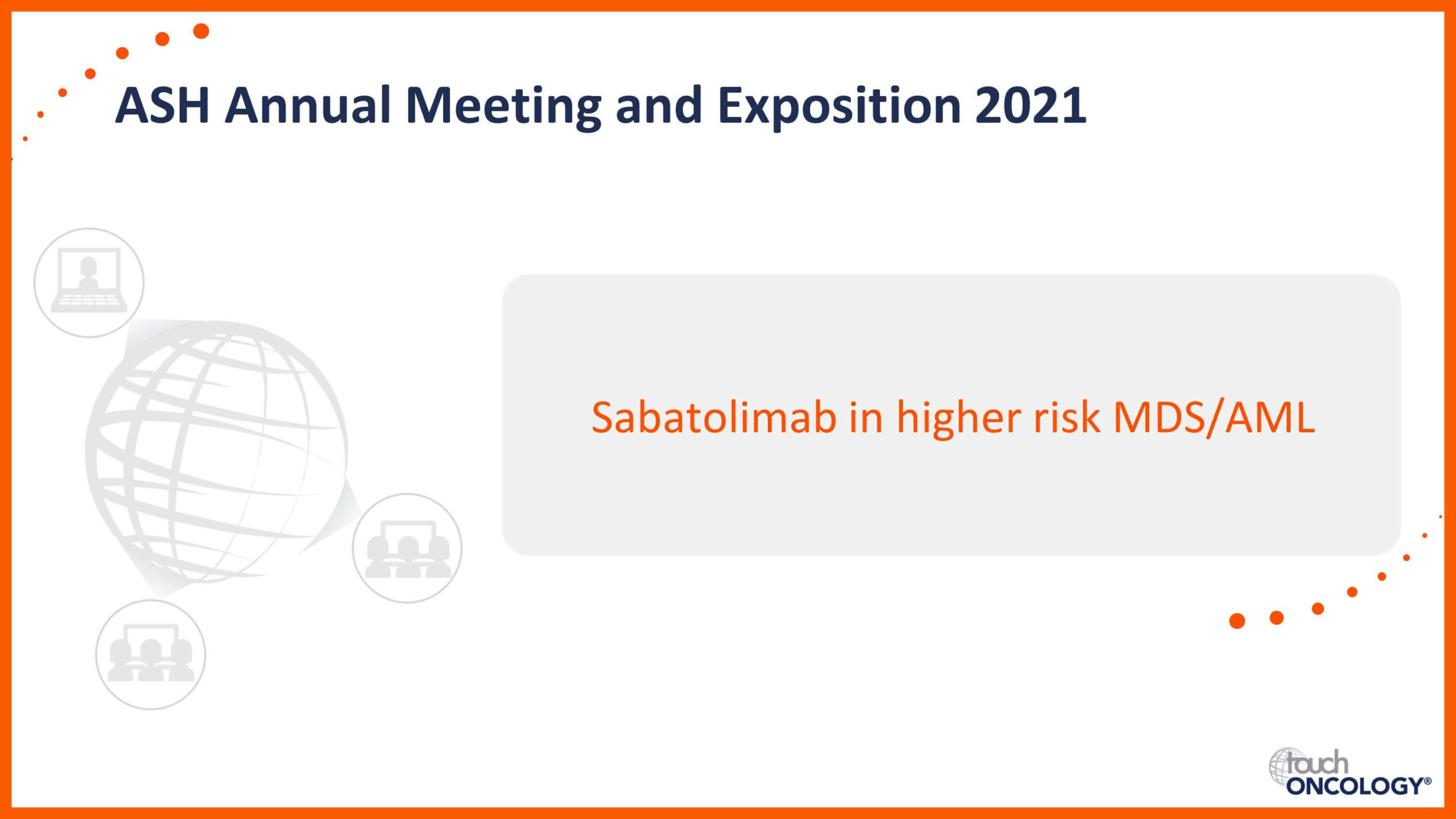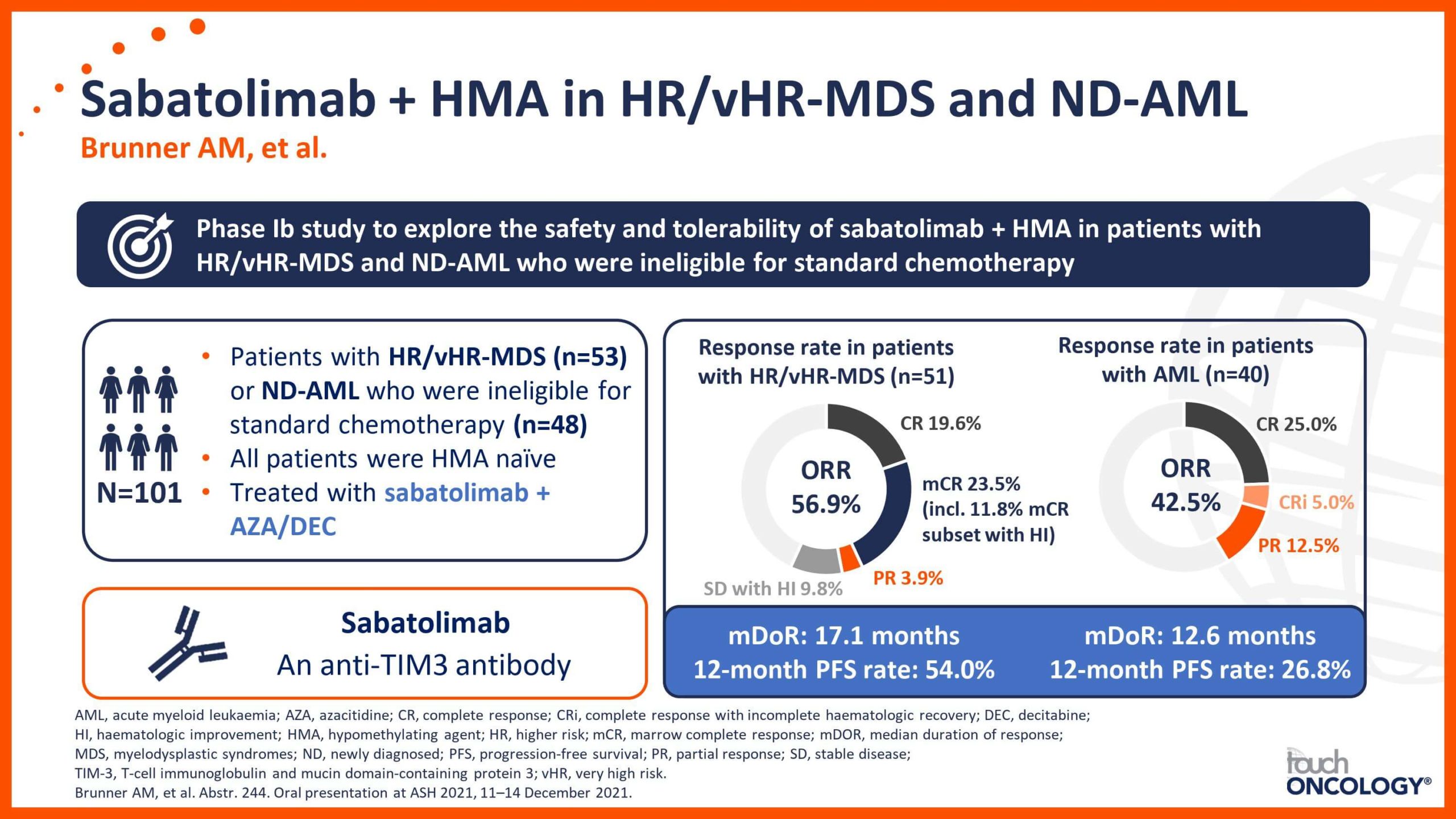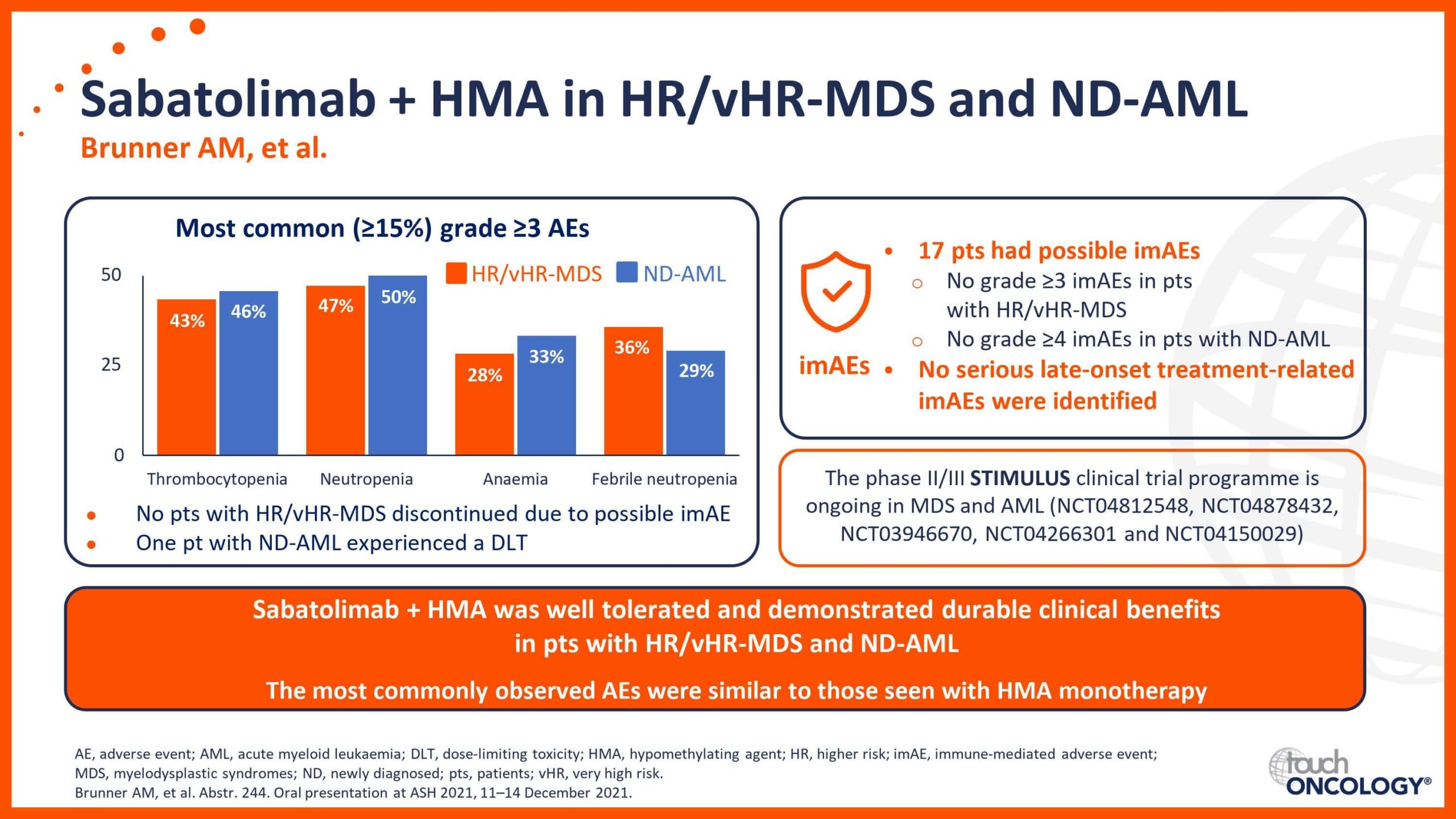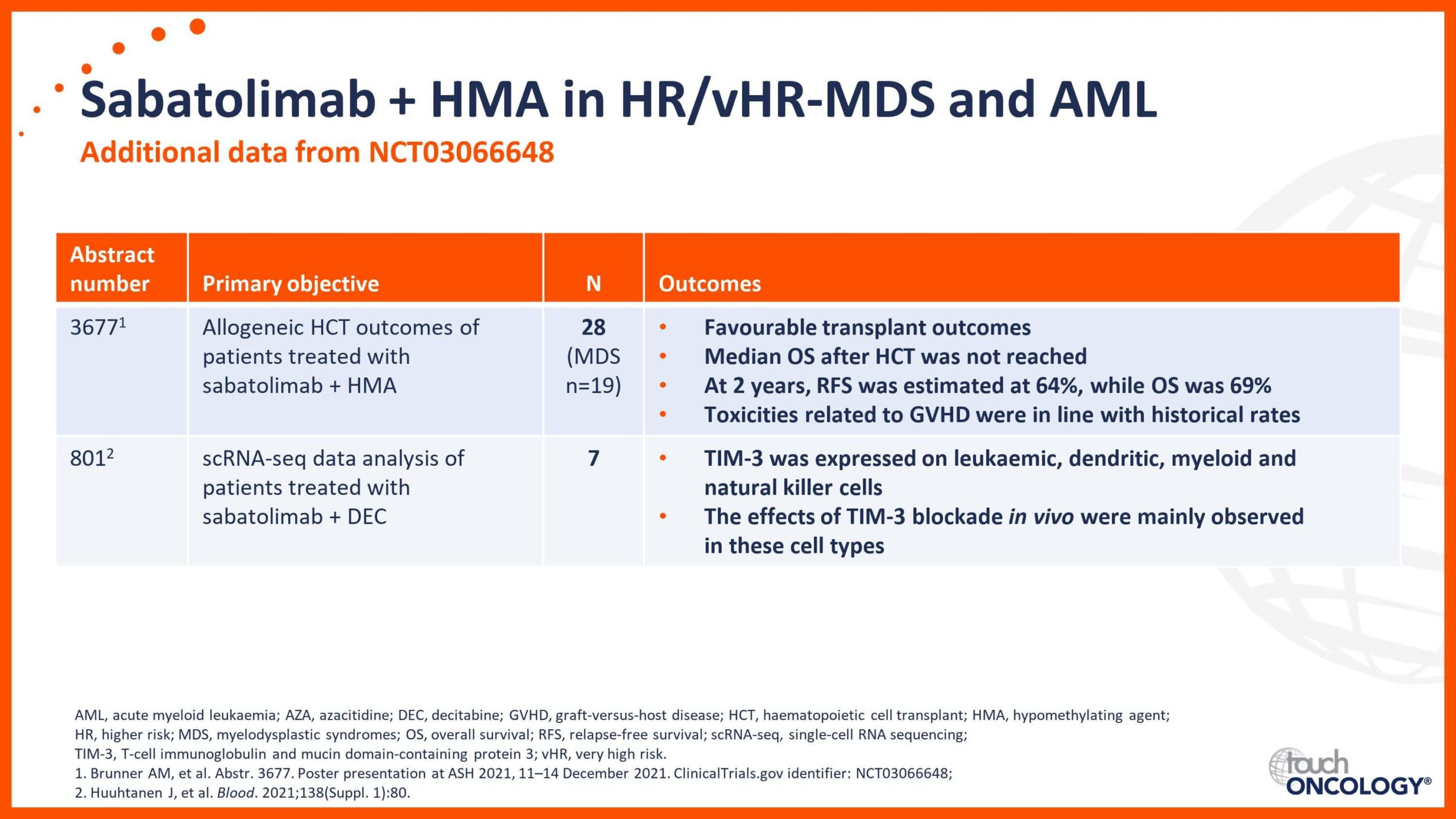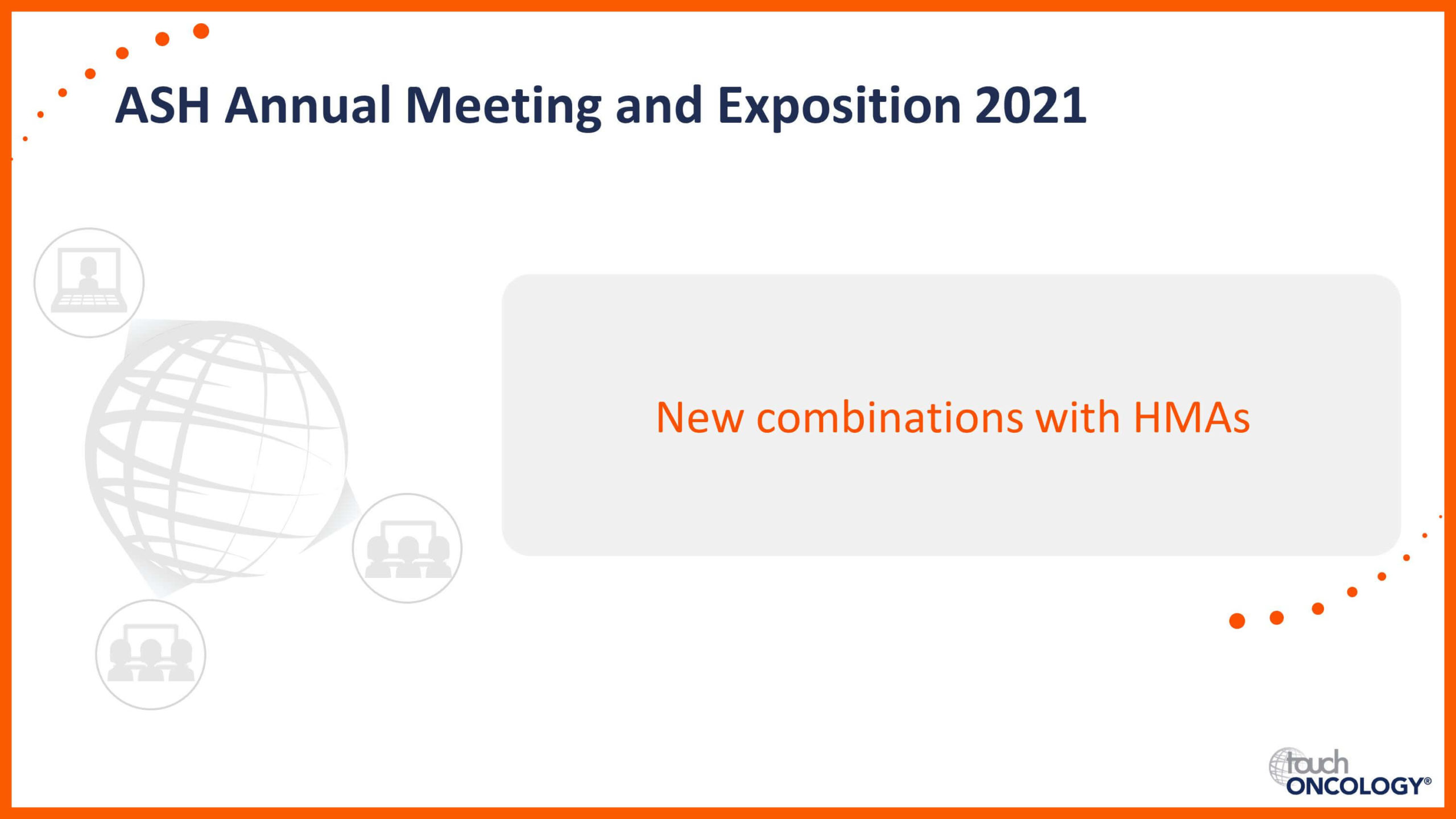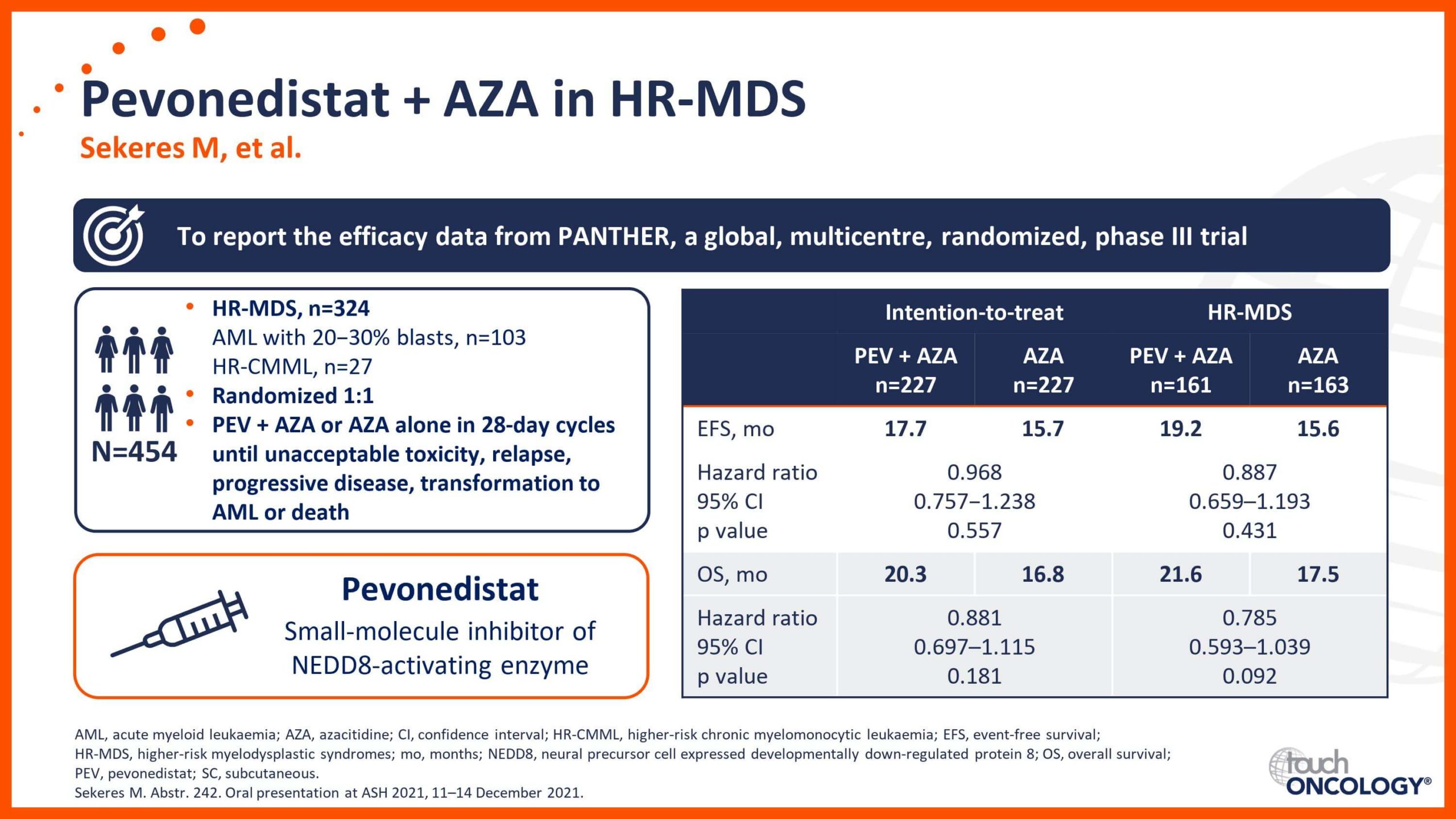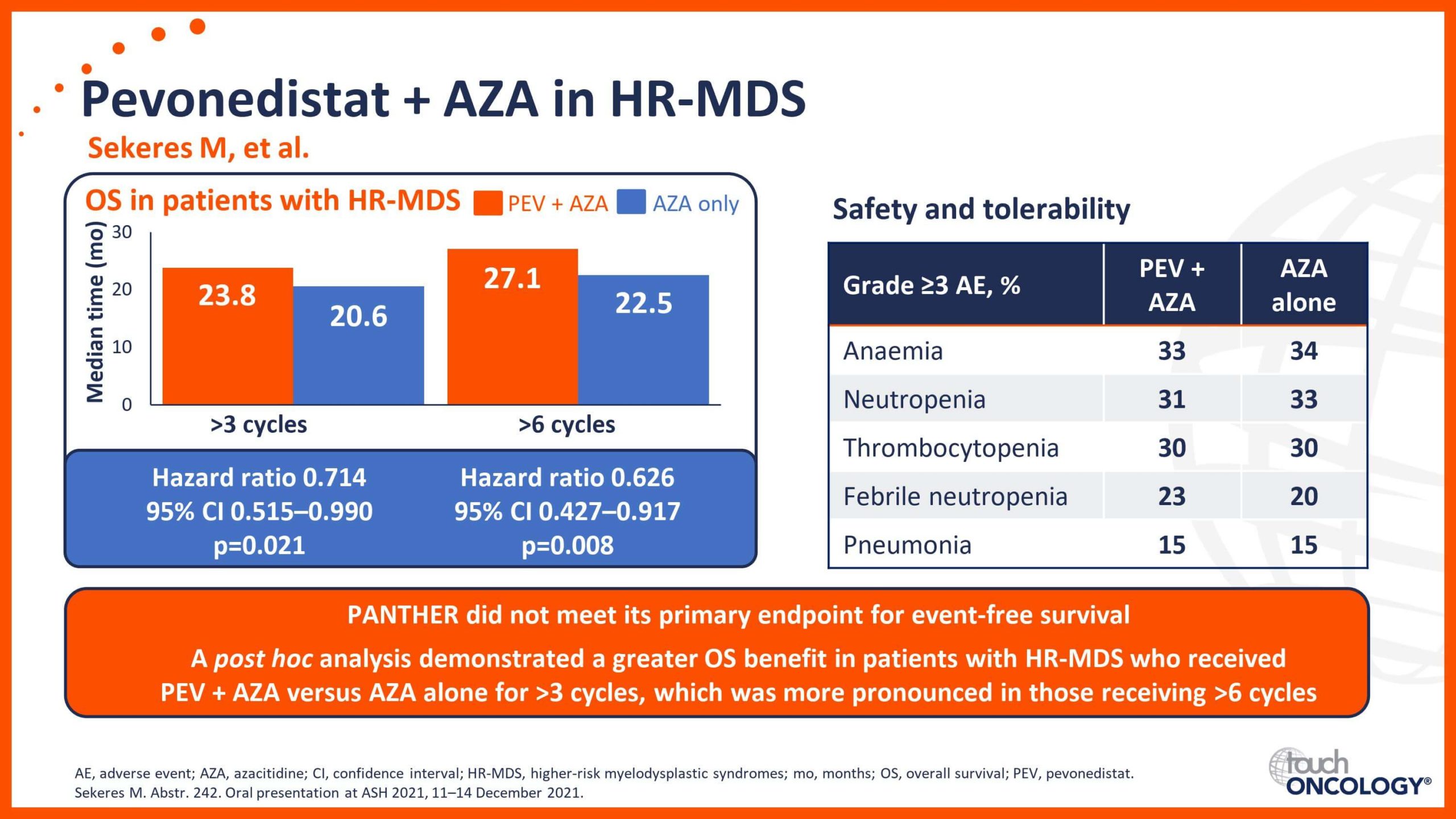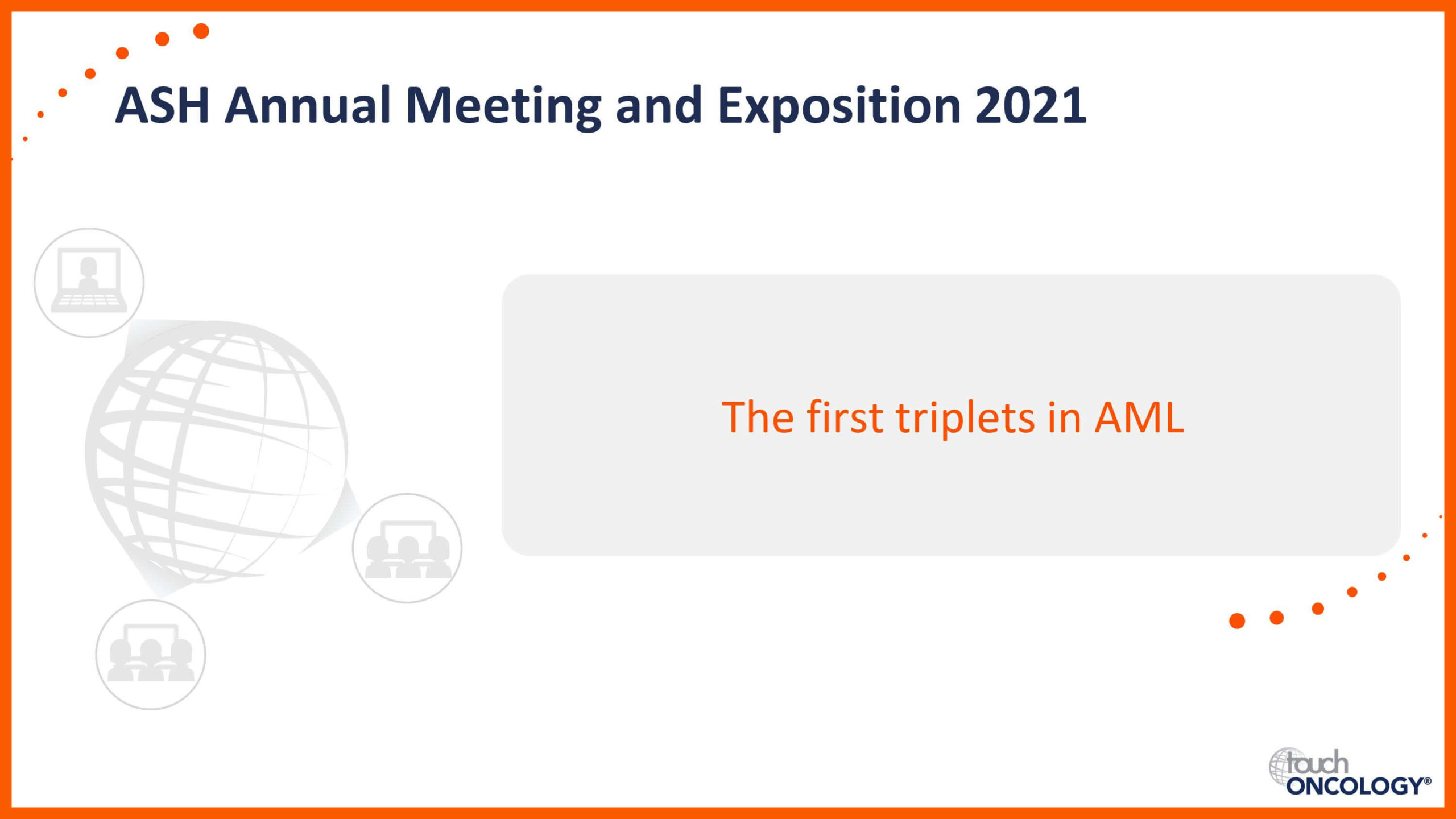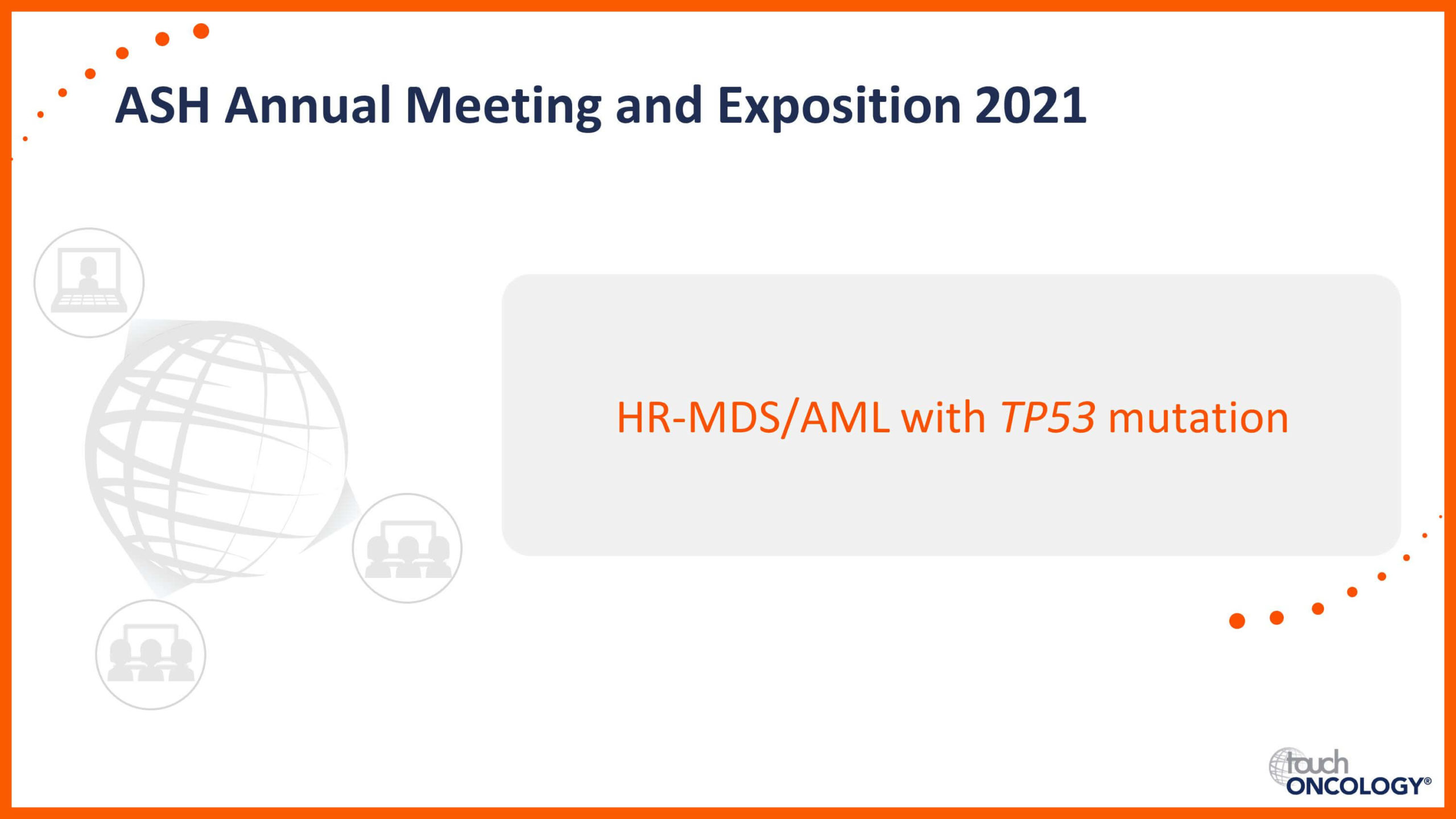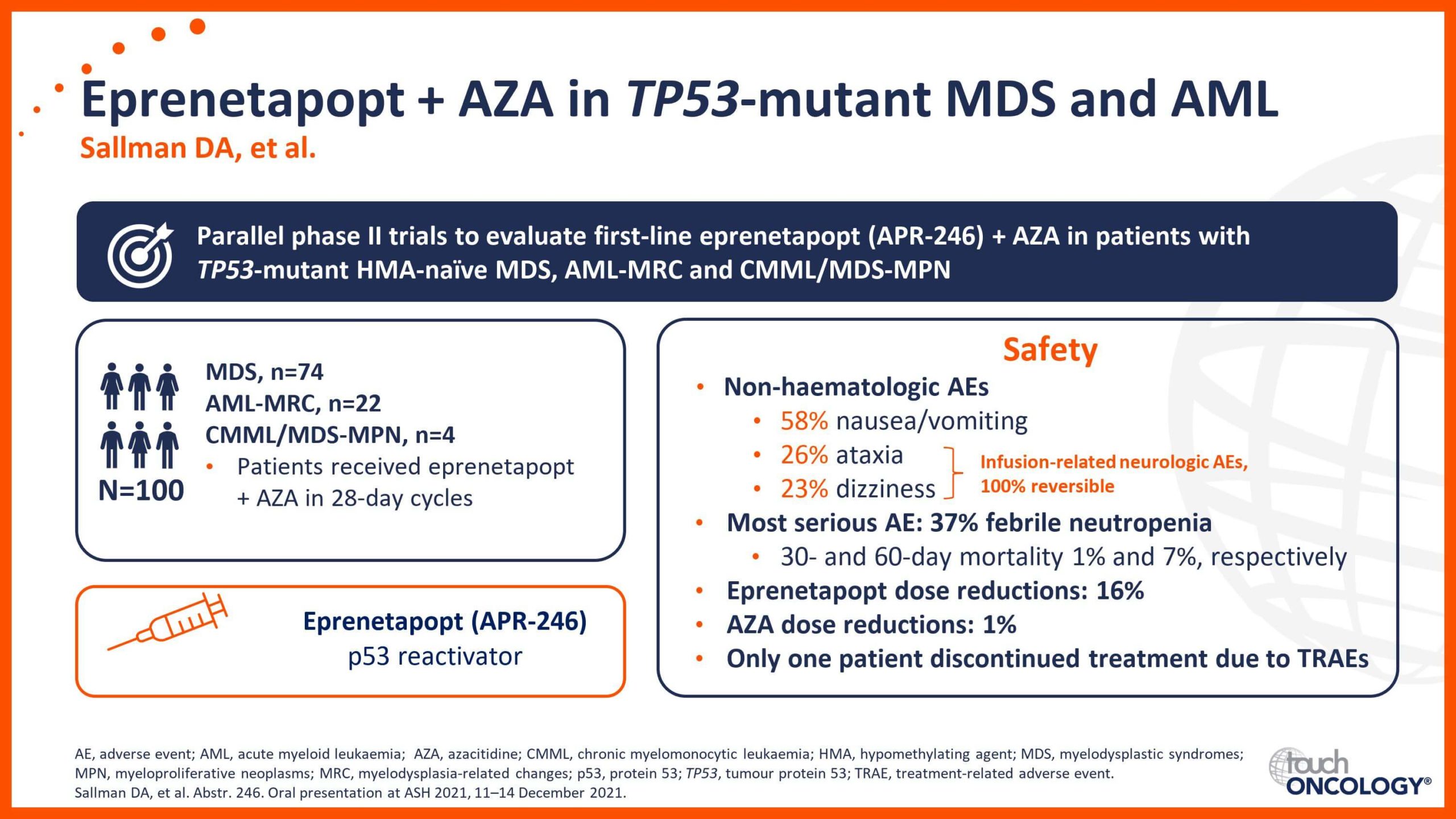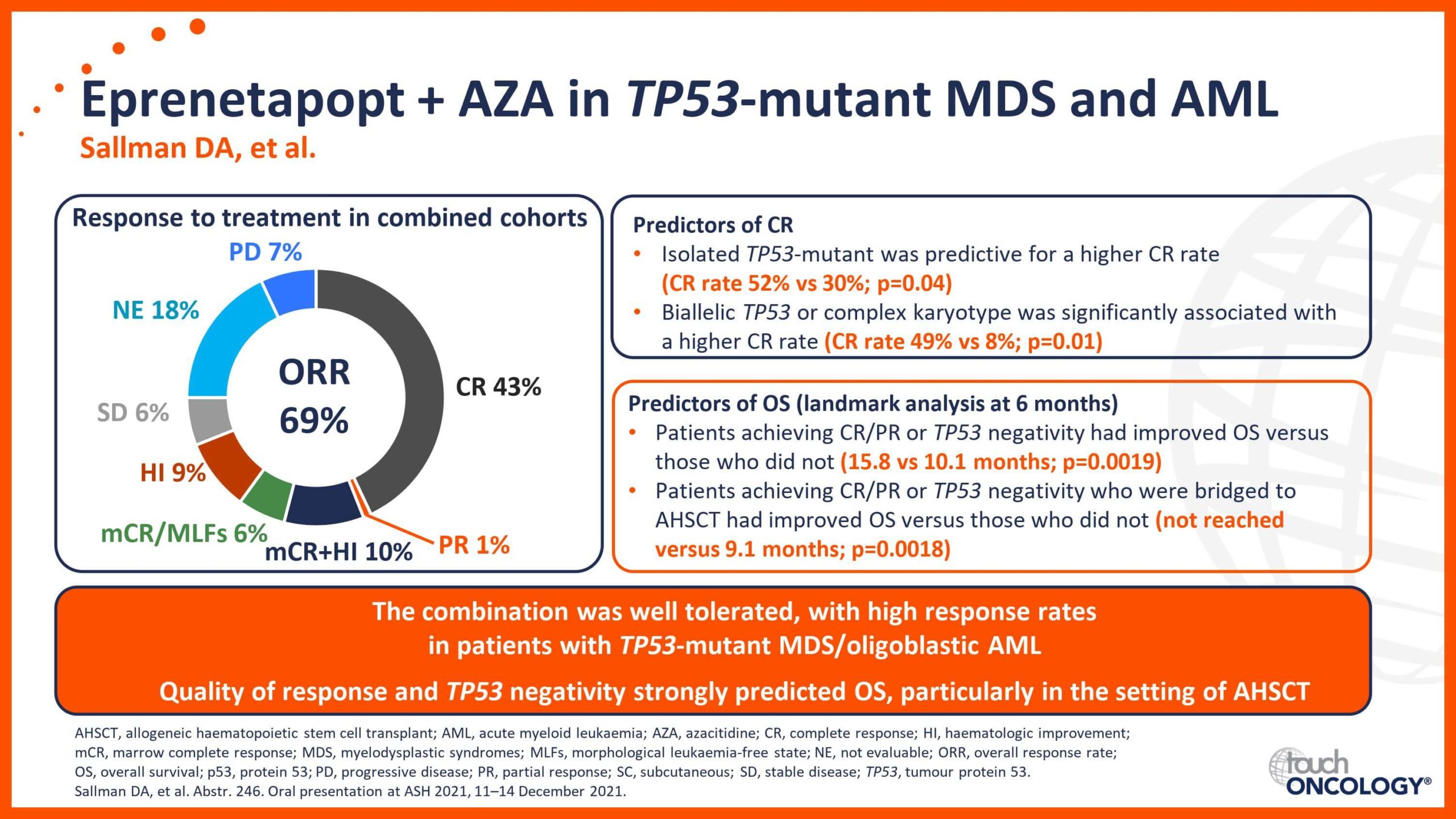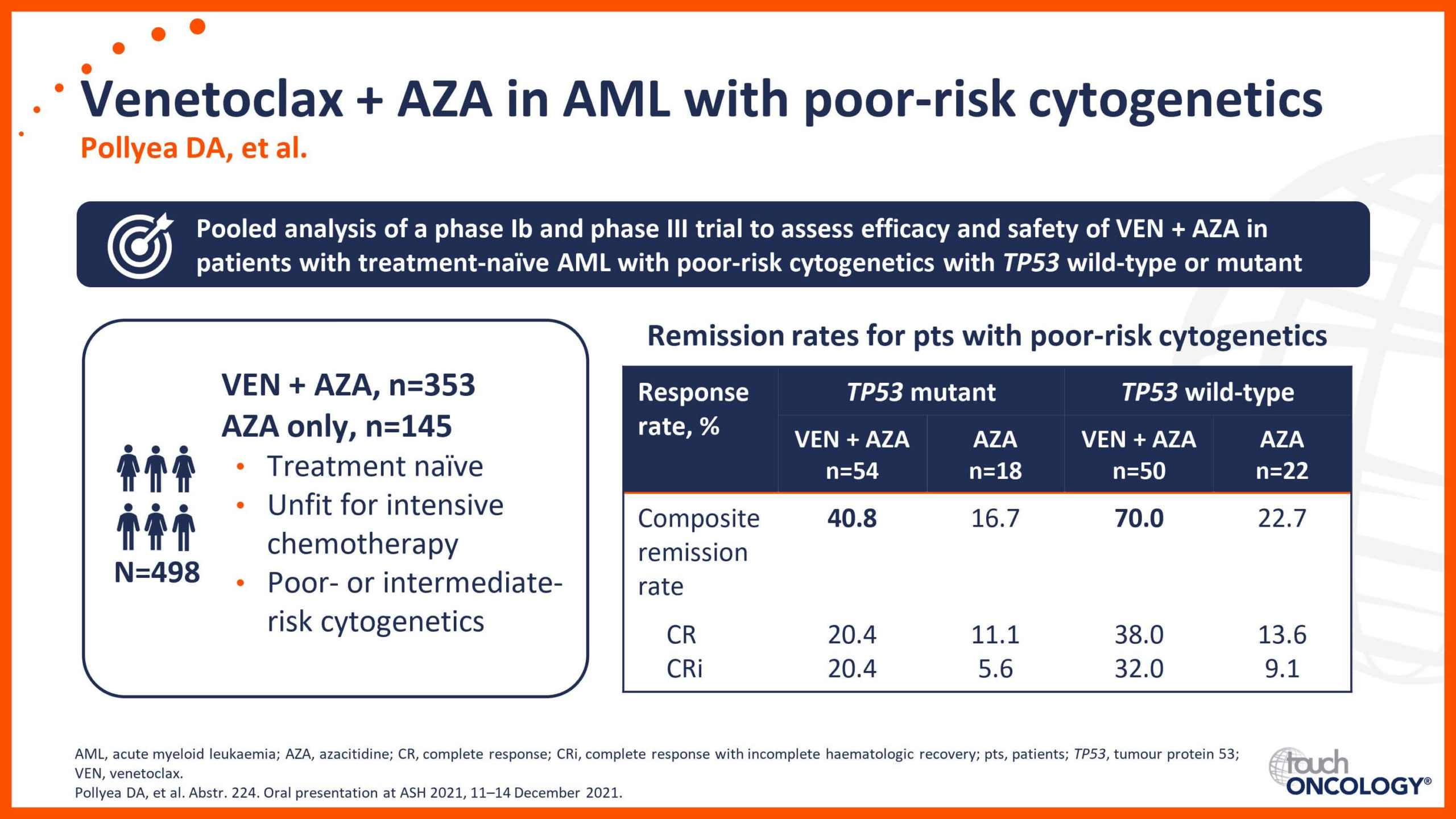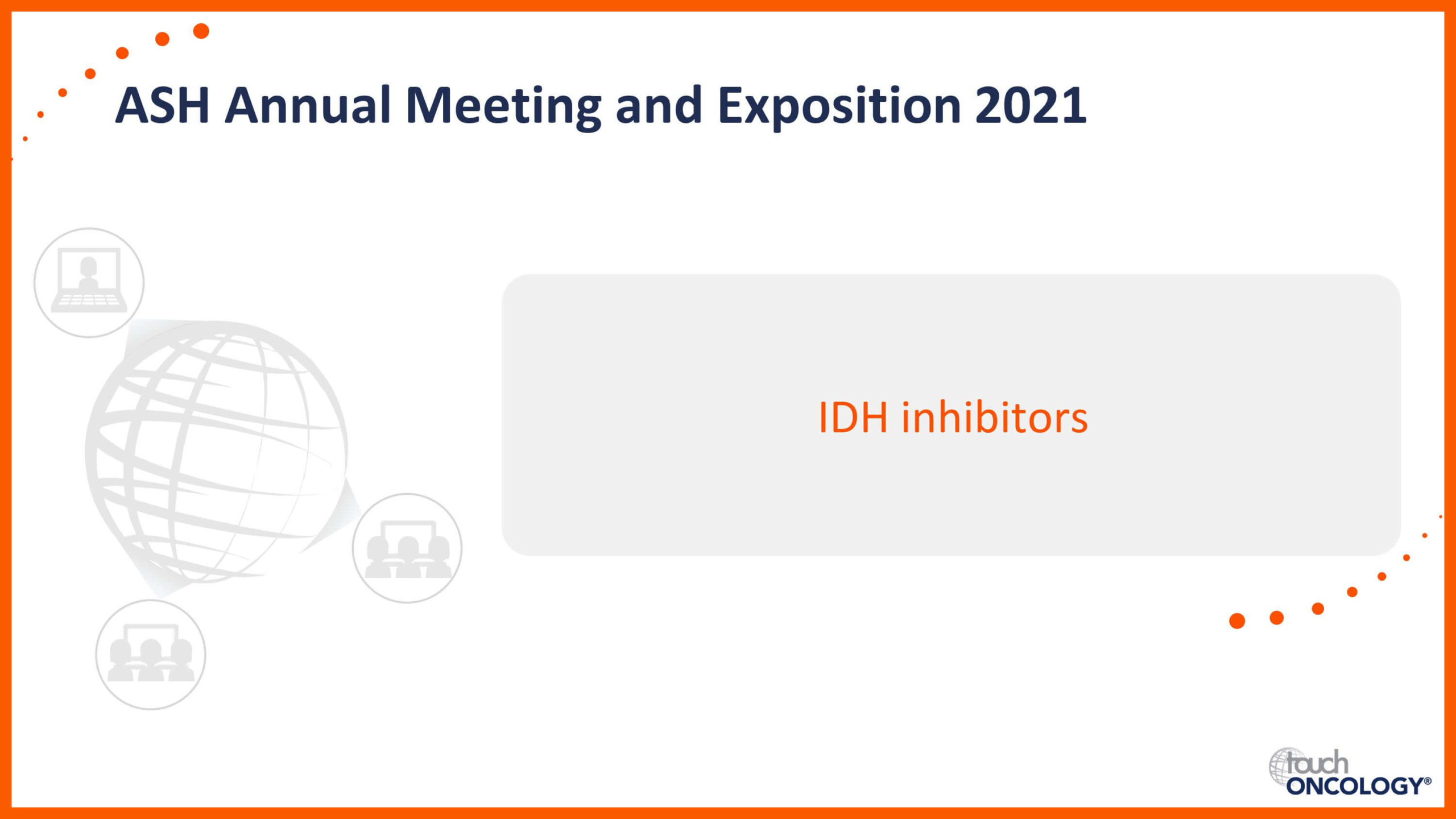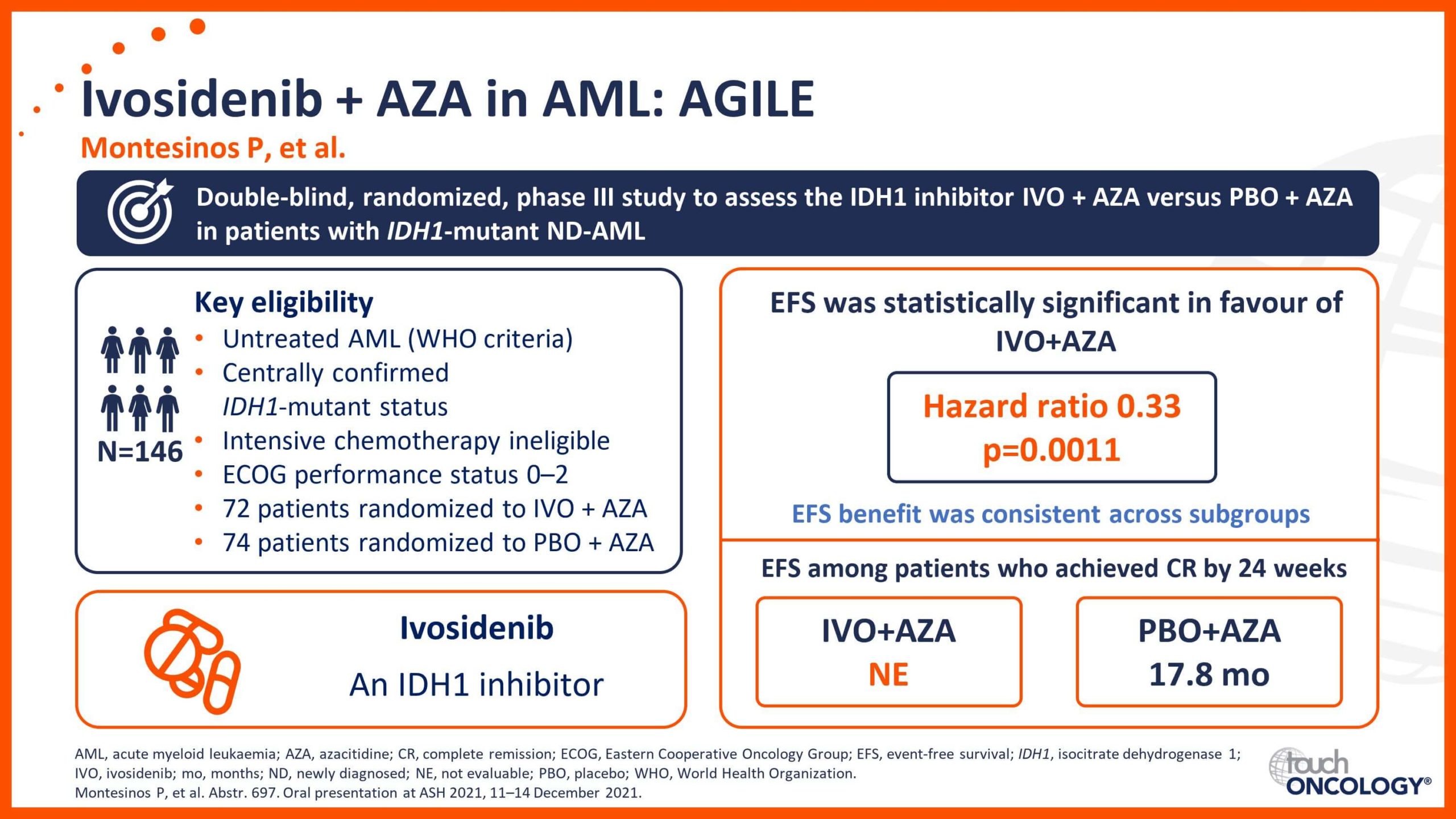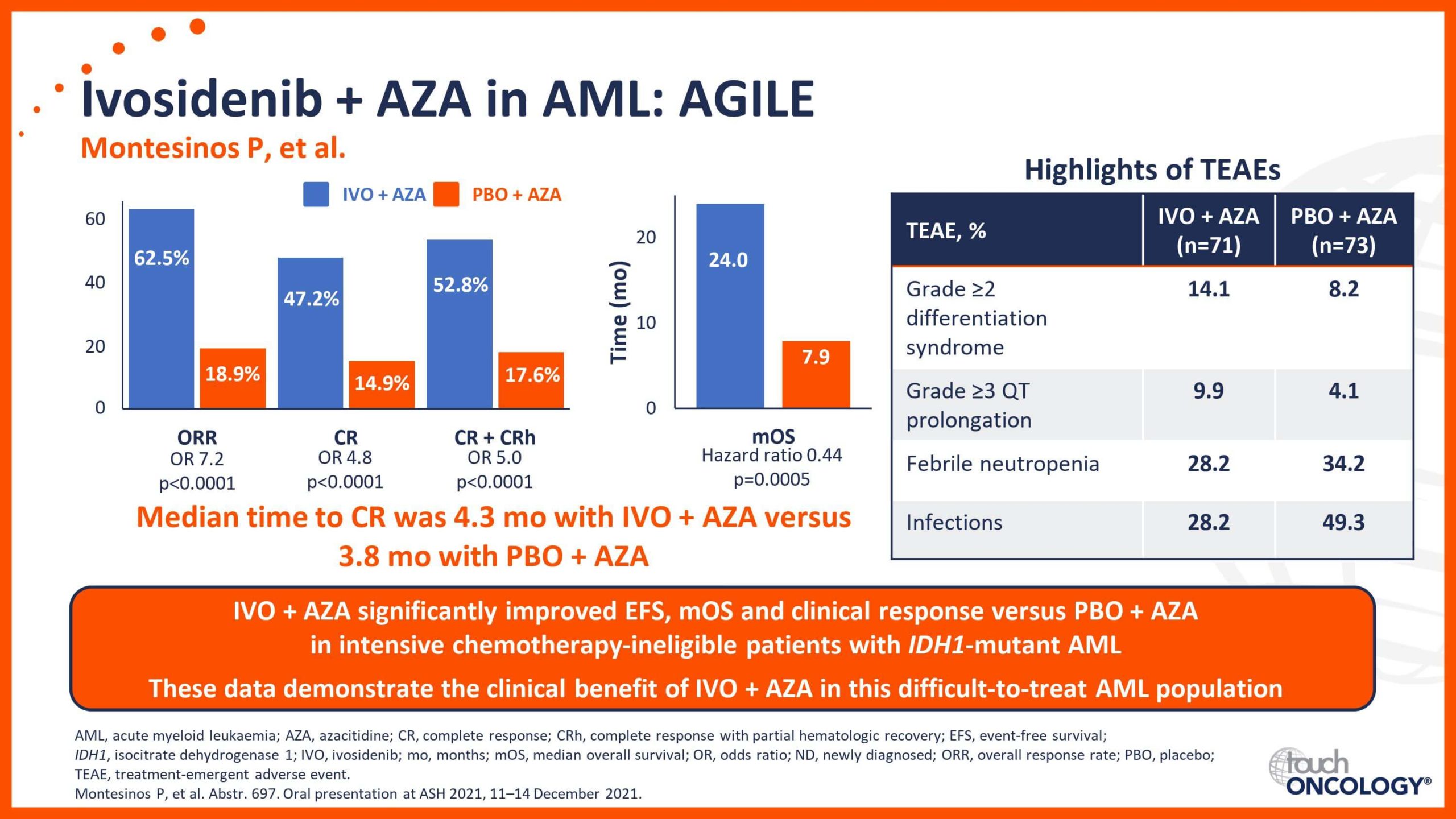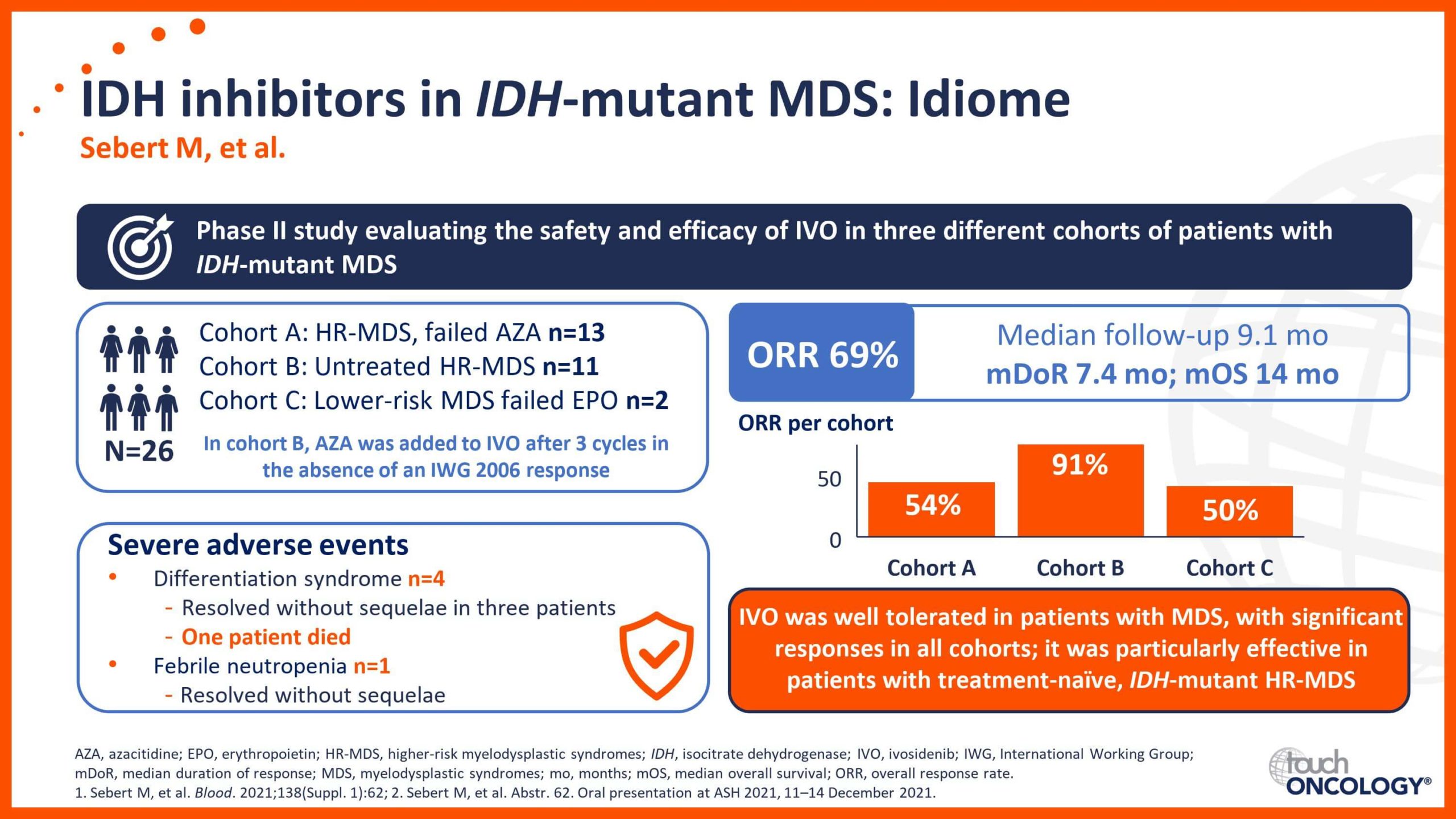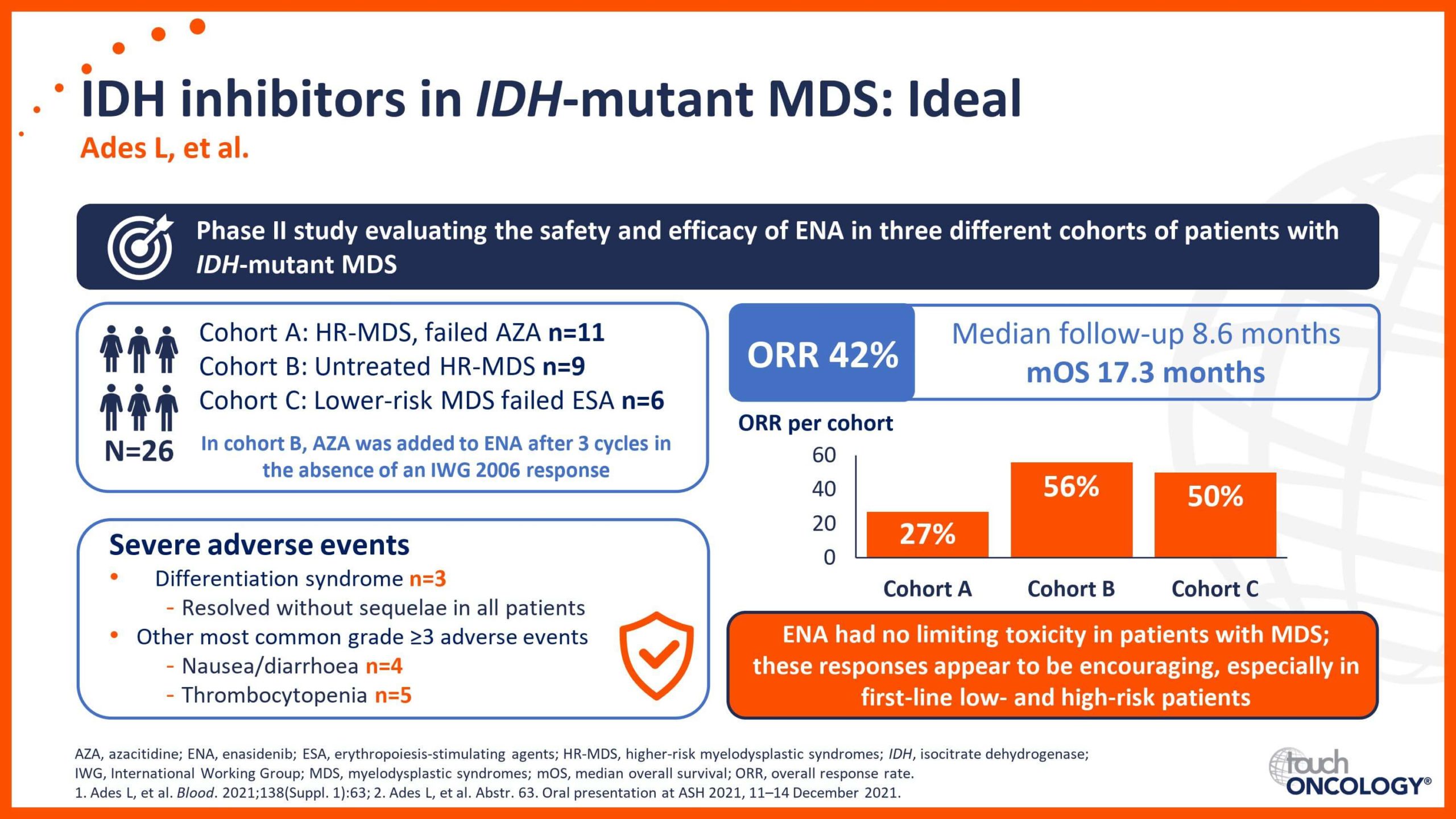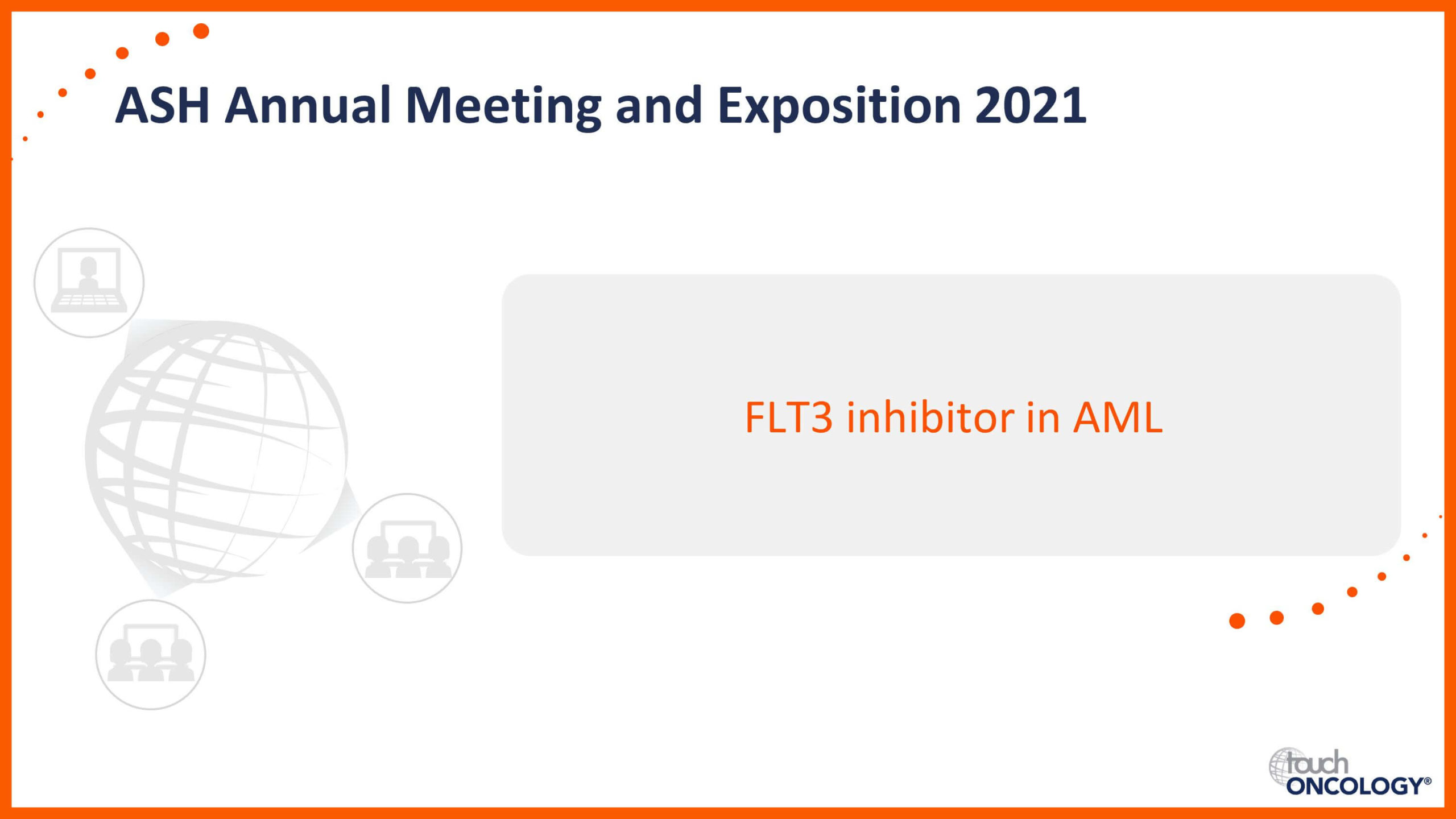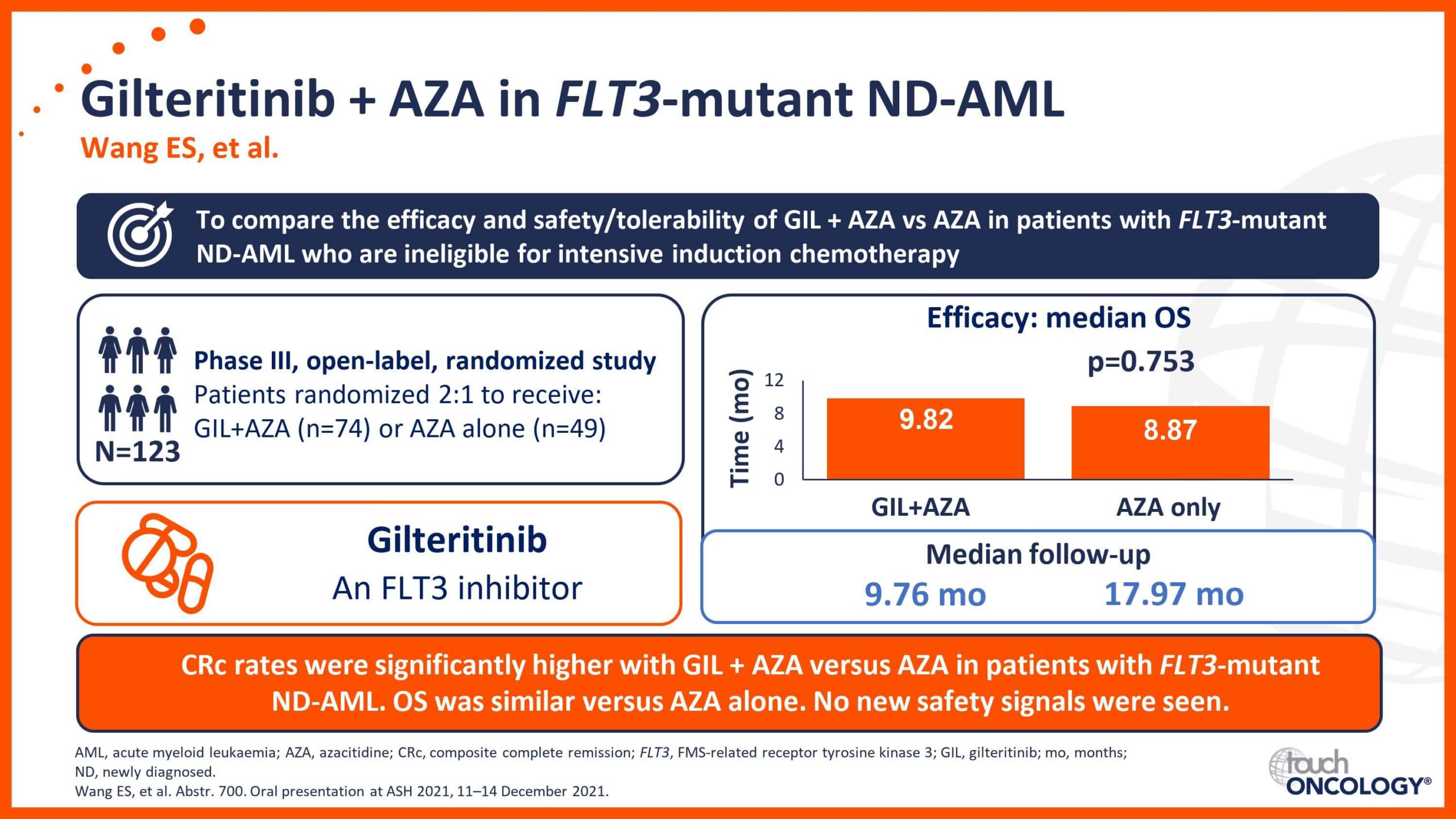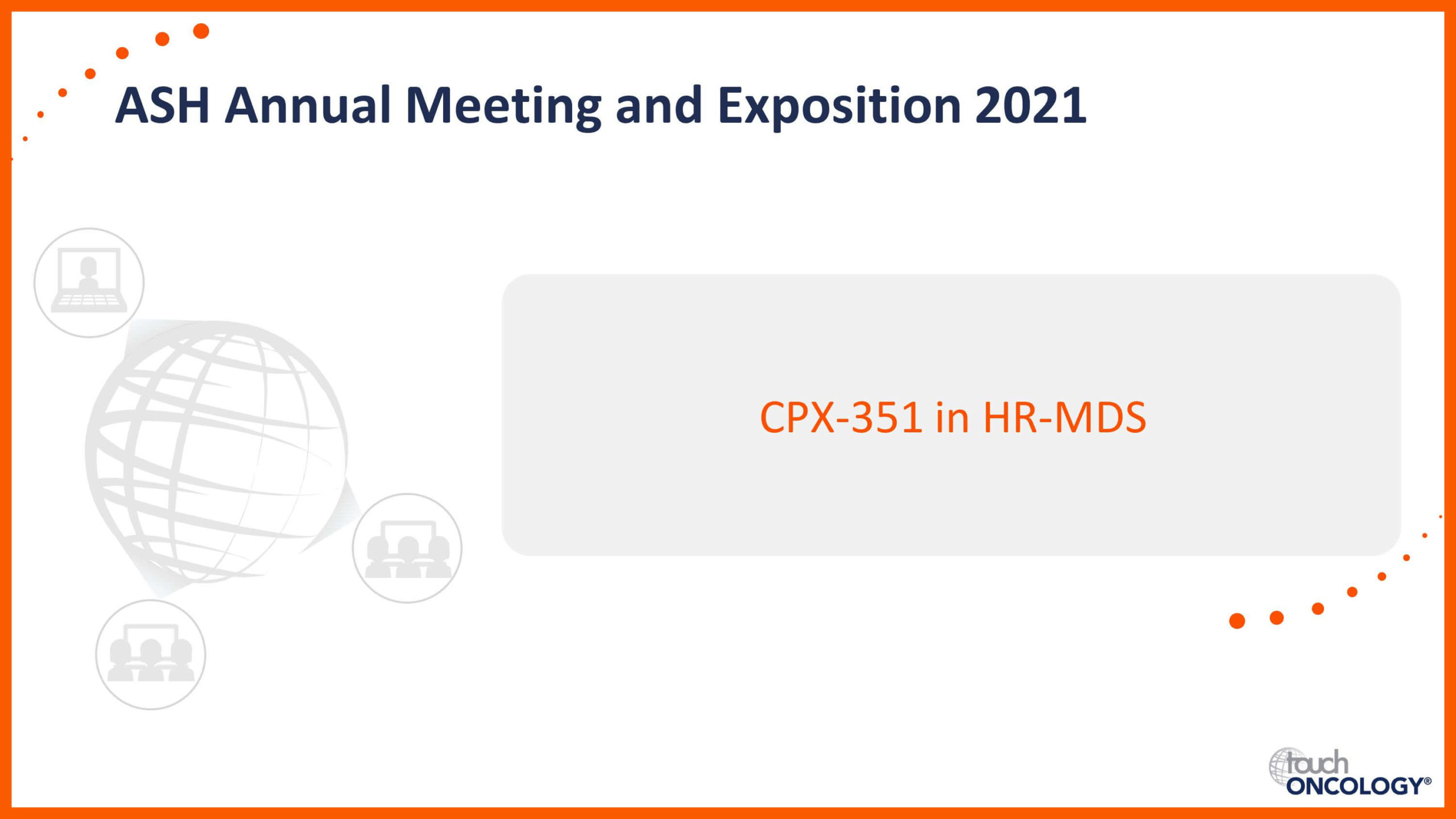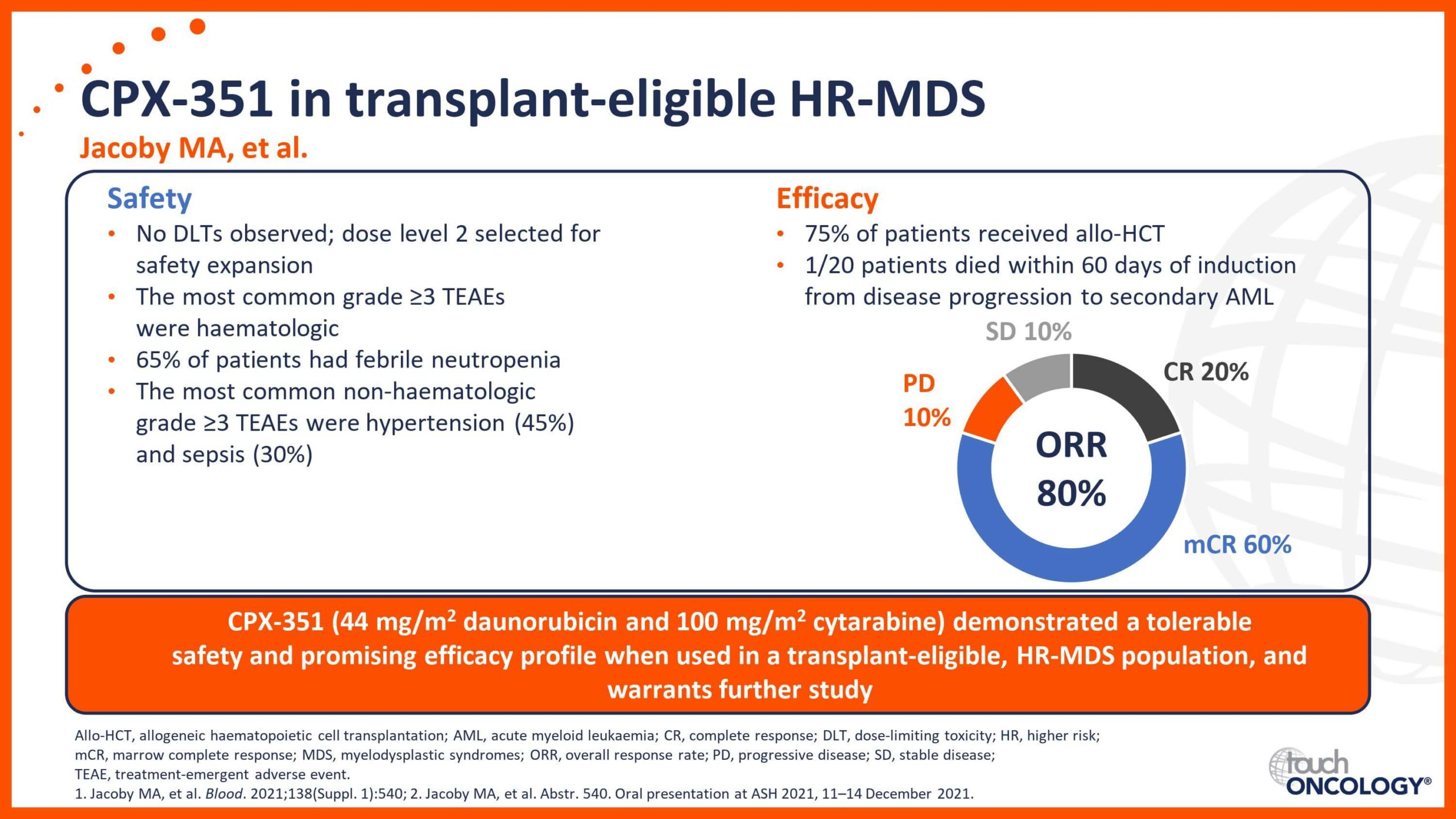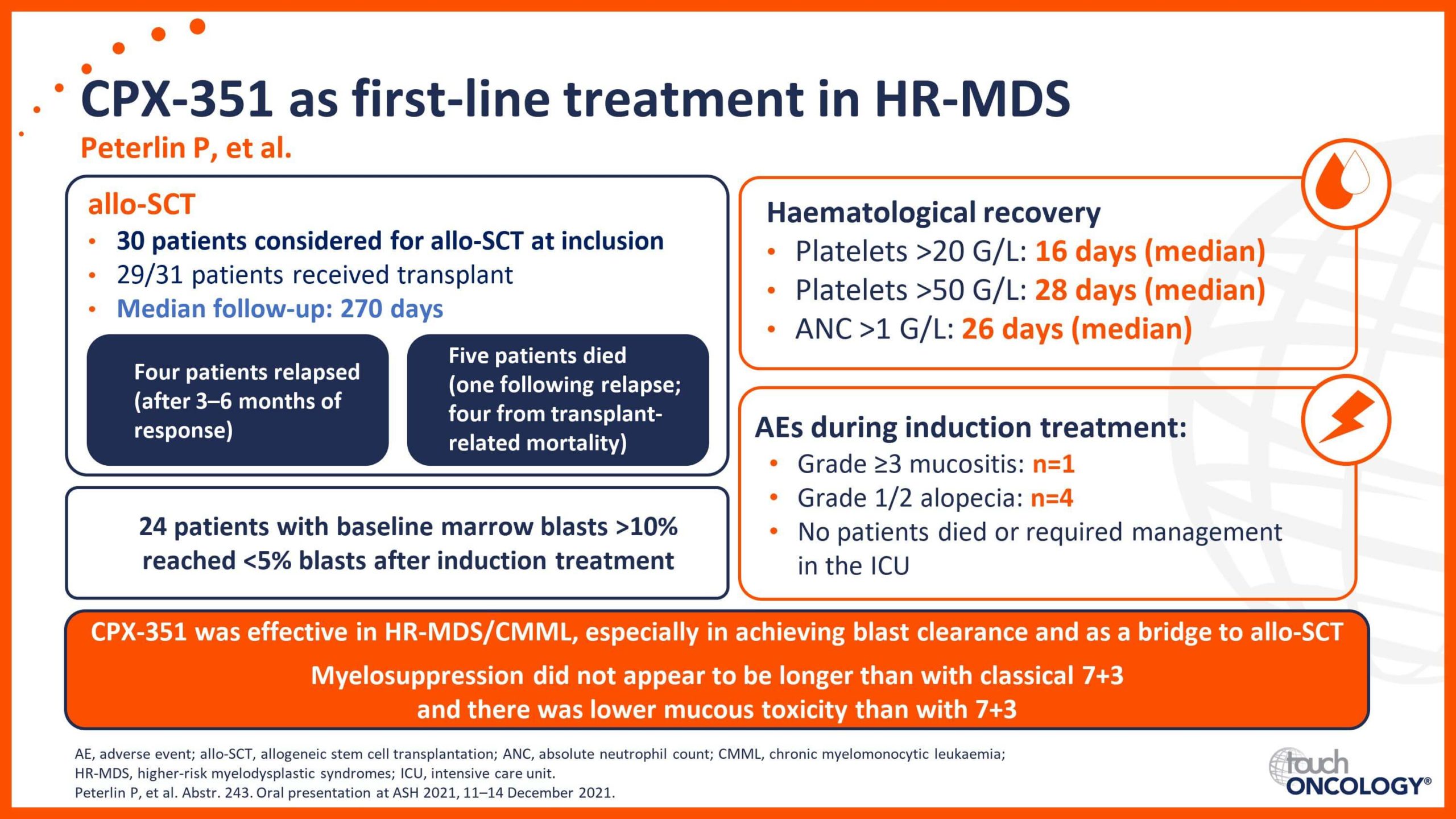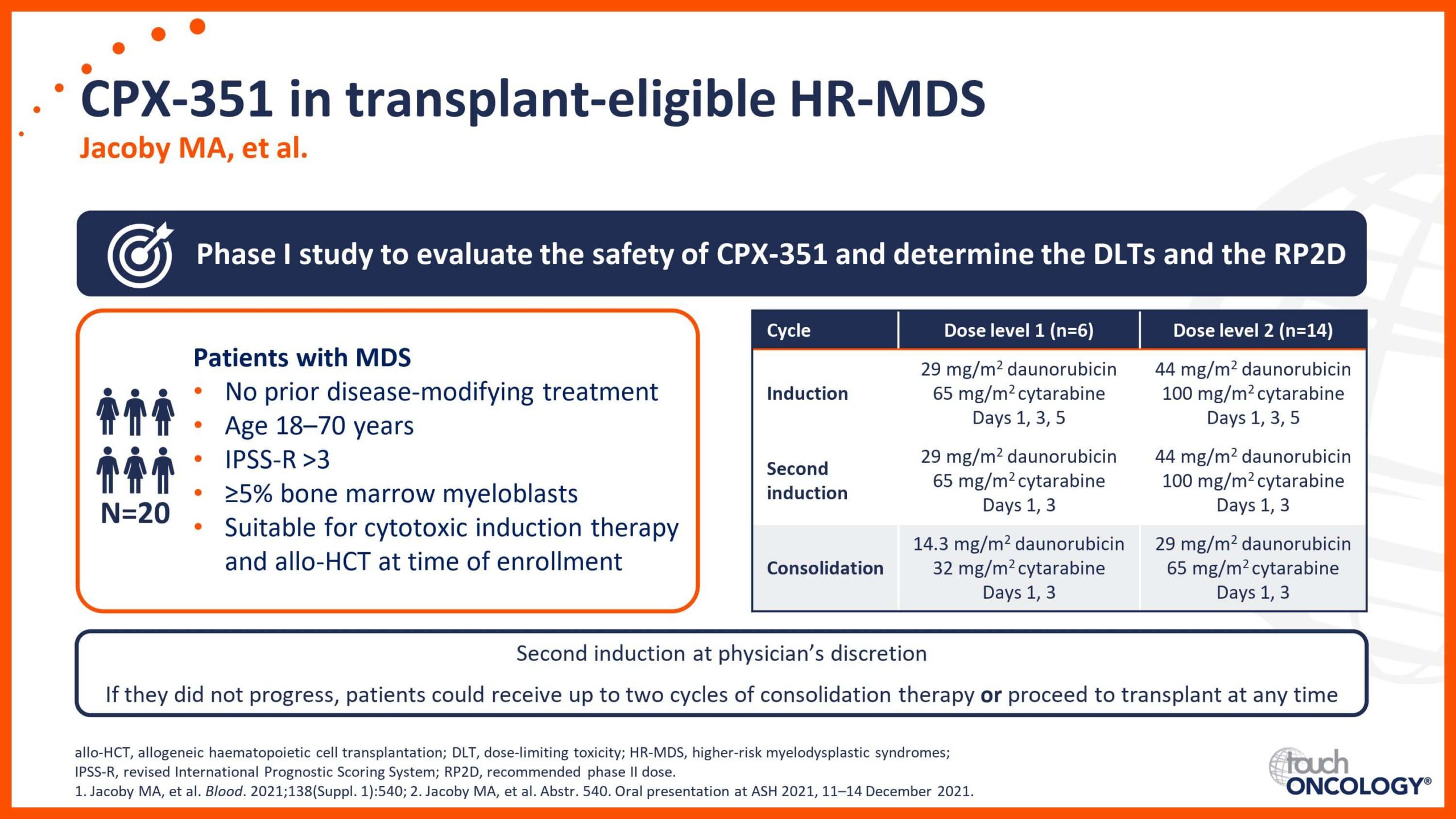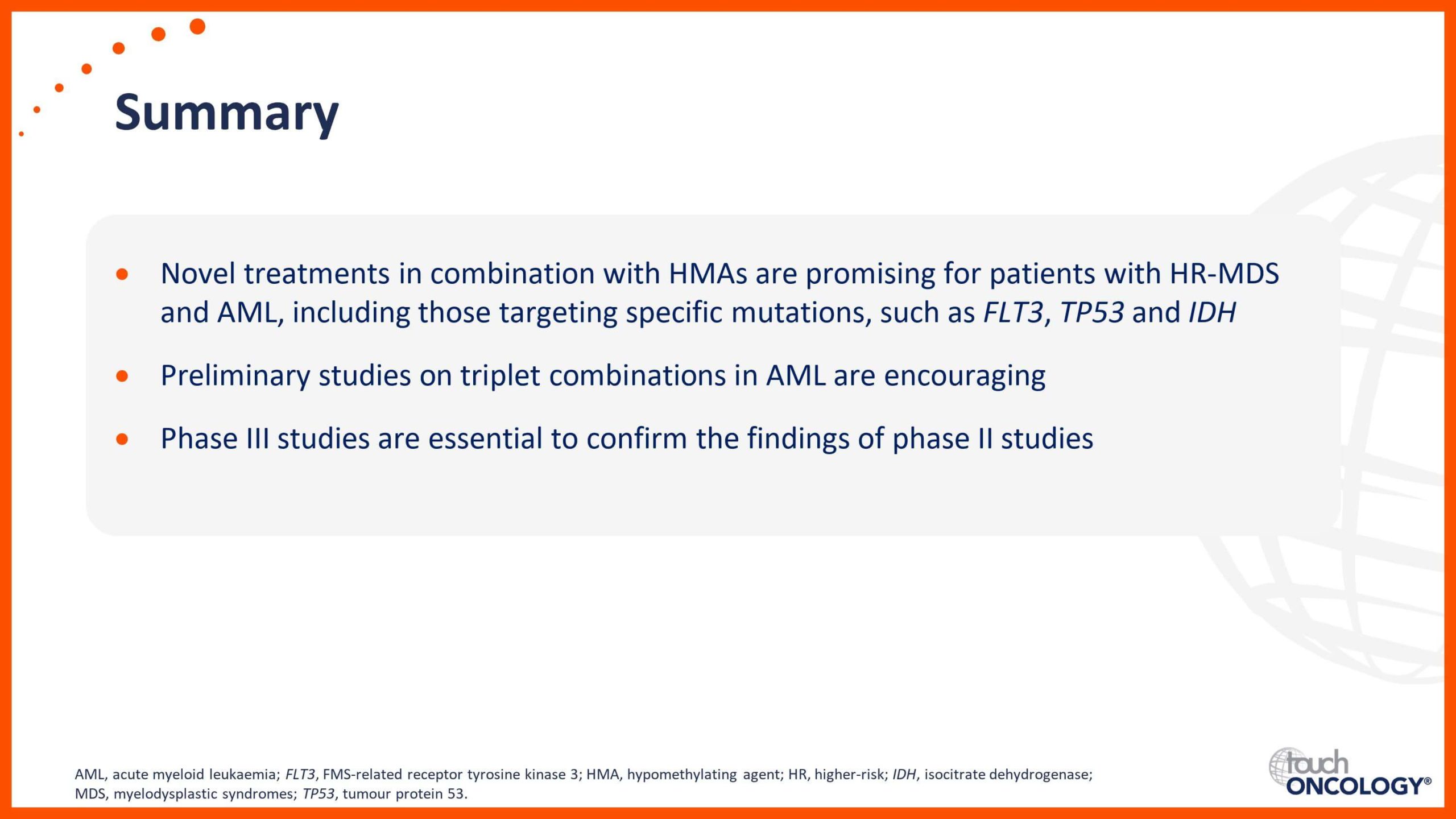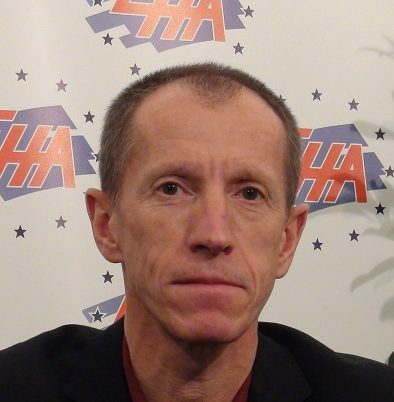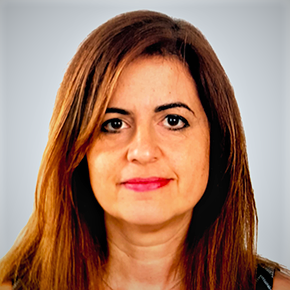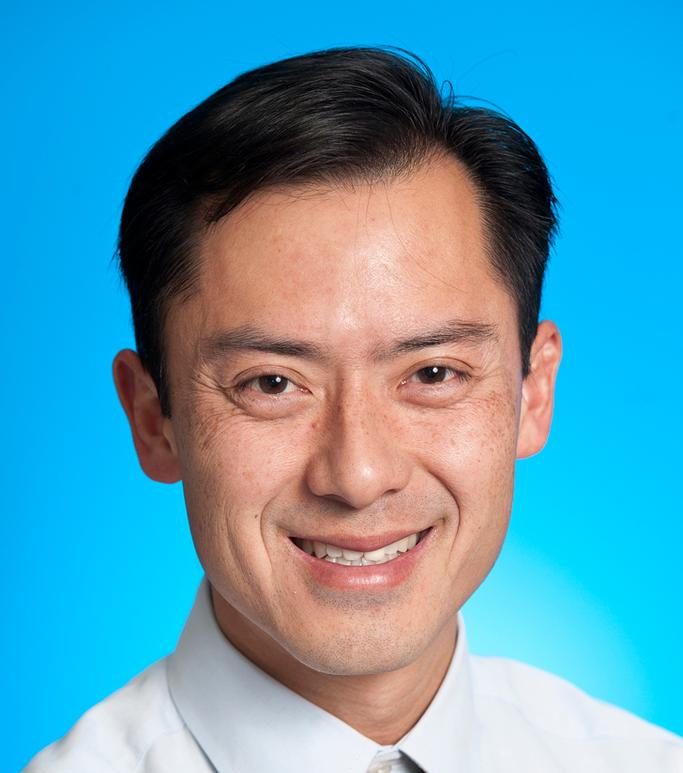touchCONGRESS Advancing the treatment of MDS and AML: An update from ASH 2021
Watch this two-part activity exploring recent data on new and emerging treatments for patients with higher-risk MDS and newly diagnosed AML, filmed following the ASH 2021 Annual Meeting & Exposition.
Part 1: Watch leading haematology expert, Prof. Pierre Fenaux, review key data from ASH 2021 Watch Now
Part 2: Choose from three leading experts who discuss what these data may mean for global and regional practice Select An Interview
Introduction and venetoclax
Sabatolimab, pevonedistat and triplet combinations
Targeting TP53, IDH and FLT3 mutations
CPX-351 and summary
Prof. Pierre Fenaux considers the latest data on novel treatments for patients with higher-risk MDS and newly diagnosed AML from ASH 2021.
Dr Esther Oliva considers the latest data on novel treatments in higher-risk MDS and newly diagnosed AML from ASH 2021.
Prof. Andrew Wei considers the latest data on novel treatments in higher-risk MDS and newly diagnosed AML from ASH 2021.
Please Select A Video:
Overview & Learning Objectives
Overview
Stay up to date with the latest data on novel treatments for higher-risk myelodysplastic syndromes (HR-MDS) and acute myeloid leukaemia (AML) in this two-part activity. Filmed following ASH 2021.
Learning Objectives
After watching this activity, participants should be better able to:
- Recall the latest data for emerging therapeutic strategies for patients with HR-MDS
- Summarize data for emerging treatments for patients with AML who are unfit for intensive chemotherapy
- Discuss advances in treatment personalization and monitoring for patients with HR-MDS or AML

Register to touchONCOLOGY for FREE
- Peer-reviewed journals and expert opinions
- Interactive CME and e-learning modules
- Video conference highlights



